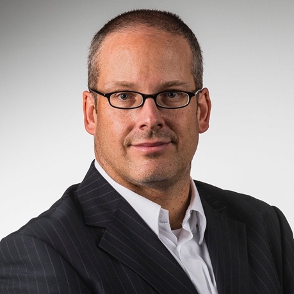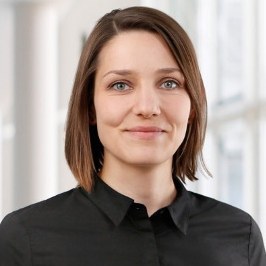Enterprise Modeling & Information System Design
Track description
The design and implementation of suitable information systems is a prerequisite for the realization of innovative business models and represents an essential basis for digital change. Enterprise modeling forms an important design basis for this. Enterprise models are the central basis of methods of information system development and aim at the joint design of computer-aided information systems and organizational action systems. The track provides a forum for current research results on conceptual modeling, enterprise modeling and information system development. The track addresses current challenges in the corresponding fields of research, including in particular the use of conceptual models in the context of "innovative forms of organization, new business models, and forms of cooperation and interaction, which exhibit considerable complexity and place corresponding demands on the design of information systems "*.
The orientation of the track reflects the diversity of research goals, research objects and research methods in the corresponding research fields.
* Frank U; Strecker S; Fettke P; vom Brocke J; Becker J; Sinz E: The Research Field "Modeling of Operational Information Systems Current Challenges and Cornerstones of a Future Research Agenda (Research Note), ECONOMIC INFORMATICS 56 (1) 2014.
Kurt Sandkuhl, Hans-Georg Fill, Stijn Hoppenbrouwers, John Krogstie, Florian Matthes, Andreas S. Opdahl, Gerhard Schwabe, Ömer Uludag, Robert Winter: From Expert Discipline to Common Practice: A Vision and Research Agenda for Extending the Reach of Enterprise Modeling. Business & Information Systems Engineering 60(1): 69-80 (2018)
Possible topics
● Conceptual models for the design of digital transformation
● Digital Work and Digital Life based on conceptual models of business informatics
● Big Data and Conceptual Data Modeling
● Modeling and new technologies (e.g. Blockchain, Internet of Things, Augmented Reality)
● Innovative modeling tools
● Business Process Modeling and Enterprise Modeling
● Modeling languages, domain-specific modeling languages, modeling methods
● Evaluation and quality of conceptual models and modeling languages
● Model analysis, executable models, model transformation, model-based software development
● Automatic modeling using data mining and process mining
● Robotic Process Automation (RPA)
● Reference models and reference model design
● Domain-specific applications of conceptual modeling (e.g. in health care)
● Model-based corporate compliance
● Philosophical and scientific theoretical basics of modeling research
Track Chairs

Peter Fettke is Professor of Business Informatics at Saarland University and Principal Researcher, Research Fellow and Research Group Leader at the German Research Center for Artificial Intelligence (DFKI) in Saarbrücken. In his research, he and his research group of about 30 people are particularly concerned with the interface between the topics of Business Informatics and Artificial Intelligence (AI), especially the modeling of computer-integrated systems and innovative application concepts. His work is among the most cited articles in leading international journals on business informatics and he is among the top 10 most cited scientists at DFKI. He is Co-Editor-in-Chief of the journal "Enterprise Modelling and Information Systems Architectures" (EMISAJ).

Kristina Rosenthal is a post-doctoral fellow at the FernUniversität in Hagen and is a member of the Enterprise Modelling Research Group there. In her research she focuses on topics of conceptual modeling and process management. In particular, she is concerned with individual modeling processes, cognitive aspects of conceptual modeling, and the design of modeling tools. Her interests also include digital process management and business process simulation. She was a guest researcher at the Universitat Politécnica de Valencia (Spain) and KU Leuven (Belgium).
Associate Editors
- Dominik Bork, TU Wien
- Patrick Delfmann, Universität Koblenz
- Werner Esswein, TU Dresden
- Michael Fellmann, Universität Rostock
- Hans-Georg Fill, Universität Fribourg
- Ulrich Frank, Universität Duisburg-Essen
- Dimitris Karagiannis, Universität Wien
- Agnes Koschmider, Universität Kiel
- Peter Loos, Universität des Saarlandes
- Jan Mendling, Wirtschaftsuniversität Wien
- Markus Nüttgens, Universität Hamburg
- Andreas Oberweis, Karlsruher Institut für Technologie
- Sven Overhage, Otto-Friedrich-Universität Bamberg
- Jana-Rebecca Rehse, Universität Mannheim
- Stefanie Rinderle-Ma, Universität Wien
- Kurt Sandkuhl, Universität Rostock
- Sebastian Schlauderer, Otto-Friedrich-Universität Bamberg
- Stefan Strecker, FernUniversität in Hagen
- Klaus Turowski, Otto-von-Guericke-Universität Magdeburg
- Mathias Weske, Hasso Plattner Institut, Universität Potsdam